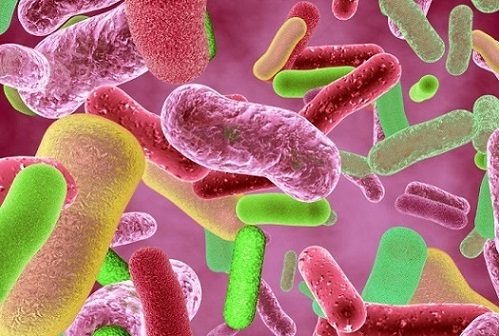Nikhil Prasad Fact checked by:Thailand Medical News Team Apr 15, 2025 20 hours, 59 minutes ago
Medical News: Greek Researchers Uncover How Leaky Guts May Be Worsening Severe COVID-19
A groundbreaking new study has revealed that severe COVID-19 cases may be driven not just by the virus itself, but by bacteria escaping from the gut into the bloodstream, triggering a dangerous immune overreaction.
 Greek Study Discovers That Bacteria from the Gut Are Fueling COVID-19 Severity!
Greek Study Discovers That Bacteria from the Gut Are Fueling COVID-19 Severity!
The research was conducted by scientists from the Hellenic Pasteur Institute and Sotiria Chest Diseases Hospital in Athens, Greece. Using advanced blood transcriptome analysis, they examined immune responses in 20 hospitalized, unvaccinated COVID-19 patients. By comparing those with mild symptoms to those with severe illness, the researchers found significant molecular differences linked to bacterial exposure in the blood.
What they discovered could change the way doctors view and treat severe cases of COVID-19. This
Medical News report reveals that in patients with more critical disease, the body shows telltale genetic signals of fighting not just a virus but also bacteria—or more specifically, bacterial components like lipopolysaccharides (LPS), which are toxic molecules from the outer membrane of certain bacteria.
Leaky Gut Syndrome May Be a Hidden Driver in COVID-19 Severity
SARS-CoV-2, the virus responsible for COVID-19, is known to infect cells in the gastrointestinal (GI) tract. When this happens, it may compromise the tight junctions between intestinal cells, allowing bacteria and bacterial fragments like LPS to escape into the bloodstream—a process known as intestinal bacterial translocation.
This "leaky gut" phenomenon leads the body’s immune system to launch a full-scale inflammatory response, mistaking these bacterial invaders for a major threat. The Greek research team found that in severe cases, genes associated with immune responses to bacterial toxins were highly activated. These genes included LY96 and TLR4, both involved in detecting LPS and launching inflammatory pathways.
Alongside these findings, the team noted that patients with severe COVID-19 had elevated levels of neutrophils (a type of immune cell associated with acute inflammation) and reduced numbers of monocytes, CD8+ T-cells, and natural killer (NK) cells. These immune shifts are consistent with both sepsis and bacterial infections—despite the patients being infected by a virus.
A Two-Stage Battle in the Bloodstream
The researchers didn’t stop at a single time point. They also looked at patient samples taken seven days after hospital admission. Early on, severely ill patients had overactive immune signaling, including genes involved in inflammation and cytokine storms. But by day seven, the blood showed increased expression of genes related to bacteria-fighting molecules like CAMP, DEFA3, DEFA4, and BPI—a sign that the immune system was still battling bacterial remnants.
Importantly, these findings confirm that bacterial transl
ocation isn’t a one-time event—it continues for days, potentially sustaining and worsening COVID-19 inflammation. The overexpression of these antibacterial genes suggests that the immune system detects ongoing bacterial presence and tries to neutralize it.
Comorbidities Like Diabetes May Make Things Worse
The study also showed that patients with diabetes were significantly more likely to have severe disease and signs of bacterial translocation. Conditions like diabetes, hypertension, and obesity are already known to disrupt gut barrier function, making it easier for bacteria to seep into the bloodstream during a viral attack.
The researchers highlight that this complex interaction between viral infection and bacterial translocation could explain why some people develop severe illness while others don’t.
Digital Cytometry Confirms Immune Cell Shifts
To better understand immune activity, the team used digital cytometry, a computational method that estimates immune cell populations from gene expression data. This analysis reinforced their findings: severe patients had increased neutrophils and reduced monocytes and T-cells—patterns seen in septic conditions and bacterial infections.
This method allowed them to draw connections between specific immune cell changes and genetic signals of bacterial invasion—offering a robust picture of how gut bacteria could be influencing disease severity.
Conclusion
This study offers powerful evidence that in severe COVID-19, the virus may be just one half of the battle. The other half comes from bacteria leaking from the gut, causing a dangerous overreaction by the immune system. These findings provide a potential explanation for the so-called "cytokine storm" seen in many severe cases and open the door for new therapeutic approaches. If doctors can identify patients at risk of bacterial translocation early, they might intervene with treatments that support gut health or block inflammatory signals triggered by bacterial toxins. By combining traditional sepsis biomarkers with specific gene expression signatures identified in this study, it may soon be possible to predict who is most at risk of progressing to severe disease. This could revolutionize COVID-19 treatment and improve survival rates for those facing the worst of the illness.
The study findings were published in the peer reviewed journal: Pathogens.
https://www.mdpi.com/2076-0817/14/4/381
For the latest COVID-19 News, keep on logging to Thailand
Medical News.
Read Also:
https://www.thailandmedical.news/news/covid-19-research-sars-cov-2-infection-causes-alterations-in-gut-immunological-barrier
https://www.thailandmedical.news/news/fructose-sweeteners-university-of-california-study-shows-that-excessive-fructose-intake-may-cause-leaky-gut-which-in-turn-leads-to-fatty-liver-disease
https://www.thailandmedical.news/news/researchers-discover-lipoteichoic-acid-from-probiotic--lactobacillus-paracasei-which-can-aid-in-aging-related-leaky-gut-and--inflammation
https://www.thailandmedical.news/pages/thailand_doctors_listings
https://www.thailandmedical.news/articles/hospital-news
Follow us on:
https://x.com/ThailandMedicaX
https://www.facebook.com/ThailandMedicalNews
https://bsky.app/profile/thailandmedical.bsky.social
https://gettr.com/user/thailandmedicalnews
https://www.tribel.com/thailandmedical/wall
and 33 other social media platforms
